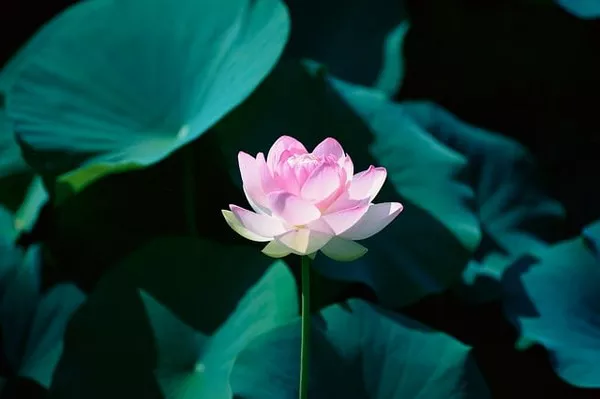Flowers have long held symbolic significance in human culture, often serving as messengers of emotions, expressions of love, and markers of significant life events. From the romantic allure of roses to the serene beauty of lilies, each bloom carries its own unique message. However, amidst this vast array of floral symbolism, one flower stands out for its profound and universal significance—the lotus.
The Lotus: Emblem of Spiritual Enlightenment
The lotus, with its delicate petals emerging from murky waters, holds deep symbolic meaning in various cultures, particularly in Eastern traditions such as Buddhism and Hinduism. Revered as a symbol of purity, enlightenment, and spiritual rebirth, the lotus transcends its physical form to represent profound philosophical concepts.
In Buddhism, the lotus is often depicted as arising from the muddy depths to blossom in pristine beauty, symbolizing the journey from ignorance to enlightenment. The flower’s ability to emerge unscathed from murky waters serves as a metaphor for the human soul’s capacity to transcend suffering and attain enlightenment.
Similarly, in Hindu mythology, the lotus is associated with divine deities such as Vishnu and Lakshmi, symbolizing purity, fertility, and abundance. The unfolding petals of the lotus mirror the unfolding of spiritual consciousness, representing the journey towards self-realization and inner peace.
Cultural Significance Across Continents
Beyond its spiritual symbolism, the lotus holds cultural significance across diverse geographical regions. In ancient Egypt, the lotus was revered as a symbol of rebirth and regeneration, with its association with the sun god, Ra, emphasizing themes of creation and renewal.
In Chinese culture, the lotus is revered for its resilience and purity, often depicted in art and literature as a symbol of beauty, grace, and elegance. The lotus flower’s ability to rise above the murky depths of its aquatic habitat resonates with the Chinese philosophical concept of overcoming adversity and achieving enlightenment.
Similarly, in Japanese culture, the lotus holds deep symbolic meaning, representing purity of heart and mind amidst the trials of life. The exquisite beauty of the lotus flower, coupled with its ability to thrive in adverse conditions, serves as a source of inspiration and contemplation in Japanese art and poetry.
A Symbol of Resilience and Transformation
The lotus’s symbolism extends beyond its spiritual and cultural associations to encompass broader themes of resilience, transformation, and personal growth. As a plant that emerges from the depths of muddy waters to bloom in pristine beauty, the lotus serves as a powerful metaphor for the human experience.
In the face of life’s challenges and adversities, the lotus teaches us to remain rooted in resilience and grace, emerging stronger and more beautiful despite the obstacles we encounter. Its journey from seed to blossom mirrors our own journey of self-discovery and transformation, reminding us of the inherent potential for growth and renewal within each of us.
The Lotus in Modern Context
In today’s fast-paced world, the symbolism of the lotus holds particular relevance as individuals seek meaning, purpose, and spiritual fulfillment amidst the chaos of modern life. In a society marked by constant change and uncertainty, the lotus serves as a timeless symbol of hope, resilience, and inner peace.
As mindfulness practices such as yoga and meditation gain popularity worldwide, the lotus has become an emblem of these practices, representing the journey of self-awareness and enlightenment. Its serene beauty and profound symbolism serve as a source of inspiration for those seeking to cultivate inner harmony and spiritual awakening in their lives.
Conclusion
In conclusion, while numerous flowers hold symbolic significance in human culture, the lotus stands out as the most meaningful flower, transcending cultural boundaries and time periods to embody profound spiritual and philosophical concepts. From its origins in ancient mythology to its enduring relevance in modern society, the lotus continues to inspire awe and contemplation, reminding us of the transformative power of resilience, purity, and enlightenment. As we navigate the complexities of life, may the lotus serve as a timeless symbol of hope, beauty, and spiritual awakening, guiding us on our journey of self-discovery and personal growth.


